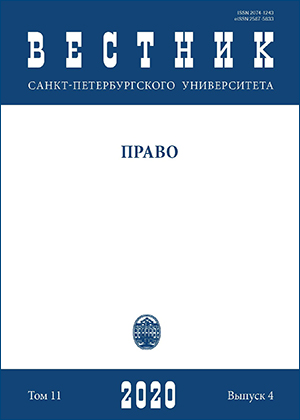Characteristics of modern budget legal regulation in China
DOI:
https://doi.org/10.21638/spbu14.2020.410Abstract
The article analyzes the current budget legal regulation in the People’s Republic of China (PRC). The author applies the context-legal approach, which assumes the obligation to take into account the features of the modern Chinese legal system. The features of “socialism with Chinese characteristics in the new era” are able to provide a deeper understanding of the public finance legal regulation (especially budget law). The analysis of various sources of the budget law in the PRC leads to the conclusion about the frequently occurring inconsistency of the Chinese legislator, uncertainty and declarative nature of the budget legal norms. The problem of the multiplicity of sources of legal regulation, which entails excessive duplication of legal norms, exists alongside the problem of the lack of a clear hierarchy of normative legal acts in the Chinese legal system. The ongoing reforms are seen as fragmentary, often becoming the main cause of contradictions between the introduced and non-repealed normative legal acts. In the article, special attention is paid to China’s experimental (pilot) procedure for the adoption of normative legal acts, which has a number of disadvantages that reduce the guarantees of the rights of obligated subjects. The article also provides an analysis of the existing sources of China’s budget law: from the constitutional level to the local one. It is found that the basic Budget Law of the PRC is flawed and not devoid of uncertainties. At the same time, the discussion on the role of the acts of the Communist Party of China provides new evidence that such acts have characteristics of a source of law.
Keywords:
China, Chinese legal system, budget law, Chinese Communist Party, socialism with Chinese characteristics, sources of Chinese law, budget, experimental procedure, budget system
Downloads
References
Downloads
Published
How to Cite
Issue
Section
License
Articles of "Vestnik of Saint Petersburg University. Law" are open access distributed under the terms of the License Agreement with Saint Petersburg State University, which permits to the authors unrestricted distribution and self-archiving free of charge.






